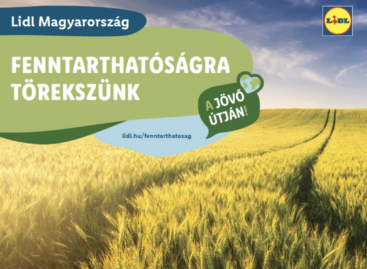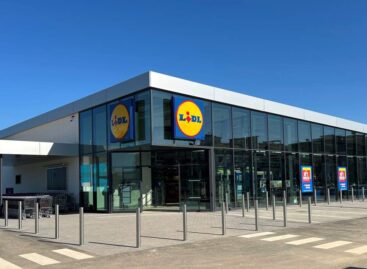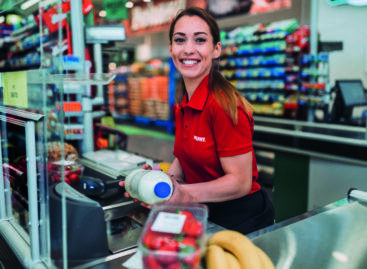Austria: Sales stagnation for discounters
In 2019 the combined market share of discount supermarket chains Aldi (called Hofer in Austria) and Lidl dropped to 26.1 percent – in 2018 their share was 26.6 percent. At the same time SPAR’s market share grew from 31.2 percent to 32 percent. The market leader was Rewe with a 34.2-percent share of the market (they operate 8 different chains) – Dr Hanspeter Madlberger, the founder of the retail magazine Key Account informed in a study.
According to Nielsen, grocery retail sales were up EUR 300 million in Austria, but the sales revenue of the two discounters was EUR 5,533 billion, just like in 2018. This means that their market share fell because sales stagnated. In 2017 Hofer opened 13 new stores and Lidl opened 12. In 2018 Hofer added 20 stores to its network and Lidl’s network expanded with 15 new stores. Nielsen says Hofer’s market became saturated with its 506 discount supermarkets, while Lidl targets those parts of the country with new stores which are ‘uncharted territory’.
How could SPAR increase its market share the most? They acquired the shops of the former Zielpunkt chain in East Austria. SPAR’s total sales augmented by about EUR 295 million. Nielsen reckons it is key in the expansion of SPAR that their organic product, convenience product, fresh product and on-the-go product selections won the hearts of many customers. It is also important that in marketing they successfully communicate sugar and palm oil use reduction. Dr Madlberger told: ‘Online retail doesn’t have a negative effect on grocery retail. Combined sales of Rewe, dm and Unimarkt represented a EUR 56 million value in 2018.’ //
Related news
Lidl has published its 3rd sustainability report
Lidl Hungary’s sustainability report for the 2022/2023 business years has…
Read more >TikTok conqueror: Dubai chocolate craze at Lidl
As the Christmas holidays approach, there is an increasing demand…
Read more >You can still shop in PENNY stores on December 24th
It is important for PENNY Hungary to ensure that its…
Read more >Related news
Lidl has published its 3rd sustainability report
Lidl Hungary’s sustainability report for the 2022/2023 business years has…
Read more >Wienerberger donated ten million forints worth of roof tiles for the construction of the Tábitha Hospice House in Törökbálint
The “Being Good is Good!” fundraising activity has been launched…
Read more >Auchan offers its regular customers extra shopping opportunities after closing
Auchan is offering a special shopping opportunity to its regular…
Read more >







